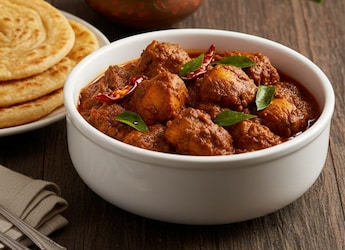From dadi's secret garam masala blend to Sunday's special chicken curry your mom always made with “andaaza,” family recipes in India are more than food. They are all about tradition, memory, and emotions, all rolled into one. But honestly, these little snippets of life often get lost between endless WhatsApp forwards and busy schedules. Most of them were never recorded or written down, so they only exist in memories. A part of us always lives in nostalgia, and the best part is that it's never too late to start. So, if you have ever wanted to recreate that perfect gajar ka halwa or the exact sambhar your chachi makes, now is the time to start! Here are five simple and meaningful ways to preserve your family recipes today and forever!
Also Read:We Don't Hand Down Family Recipes Any More. That's Not a Bad Thing
Here Are 5 Easy Ways To Preserve Your Family Recipe For Generations
1. Don't Use The Original Recipe Paper In The Kitchen
Photo: Pexels
Do you have a recipe diary/page that has been passed down by your nani or dadi? Don't bring it near the oil-splattered stovetop. Cooking in the kitchen can get messy with turmeric stains, curry splashes, and steam, and if your recipe is written on a piece of paper, you wouldn't want to ruin it. Instead, what you can do is scan or take a photo of it and cook using a printed copy. Store the original one in a plastic sleeve or a safe folder in your cupboard. Remember, it's not just a piece of paper but a part of your family's culinary legacy, so keep it safe.
2. Figure Out “Andaaz Se” Into Real Measurements
Ask your mom how much jeera, and she'll say, “Bas thoda sa.” But this isn't very helpful when you're trying to make her signature rajma. Most of our household kitchens run on this assumption, which actually makes it tricky to recreate their dishes. So next time you're watching someone cook, pull out your measuring spoons and note it down properly. Ask them to show what “thoda” or “thik thik” means. Once measured and written down, your recipe will become replicable not just for you but for other members of the family too!
3. Shoot A Video Of The Cooking Process
Photo: Pexels
Sometimes, the essence of a recipe lies in the way it's made. The way your dadi does the tadka with red chillies and hing or how your mausi folds the modak dough just right. These are the things a written recipe can't really encapsulate in words. Instead, record them on your phone or on a video camera. This would give you real-time footage of their process, their chatter or even their kitchen hacks. It's a lovely way to preserve your family's voices and mannerisms. One day, these short videos will give you immense nostalgia and a delicious meal on your plate.
4. Ask About Recipes You Have Never Heard Of
Your nani probably made a summer special chutney or some forgotten millet-based dish that isn't even on Google. The beauty of Indian cuisine is that it's deeply immersed in regions and very personal. Don't just ask for butter chicken or aloo paratha. Think of something else! Ask your family about recipes they ate growing up, or recipes their parents used to make. These lost gems could be your family's next favourite. Write them down to preserve, not just the dish, but also your family member's memory.
5. Stop Waiting For The Right Time
Photo: Pexels
We always think we'll start it “someday,” but recipes, like memories, can fade with time. So don't wait for some festival or family reunion. Take a pen when your mom is making her wholesome rasam, or record your bua when she's making her famous achar. Even if it's a half recipe, it's better than nothing. Dedicate a separate copy for it, send voice notes, or just click a picture of the ingredients. It's okay to be messy. What really matters is that you're taking the first step to keep the taste of your family recipes alive.
Also Read:Pasanda: A Secret Family Recipe Revealed From Kayasth Kitchens
So, take notes and preserve your family's favourite recipes for many, many years to come.
